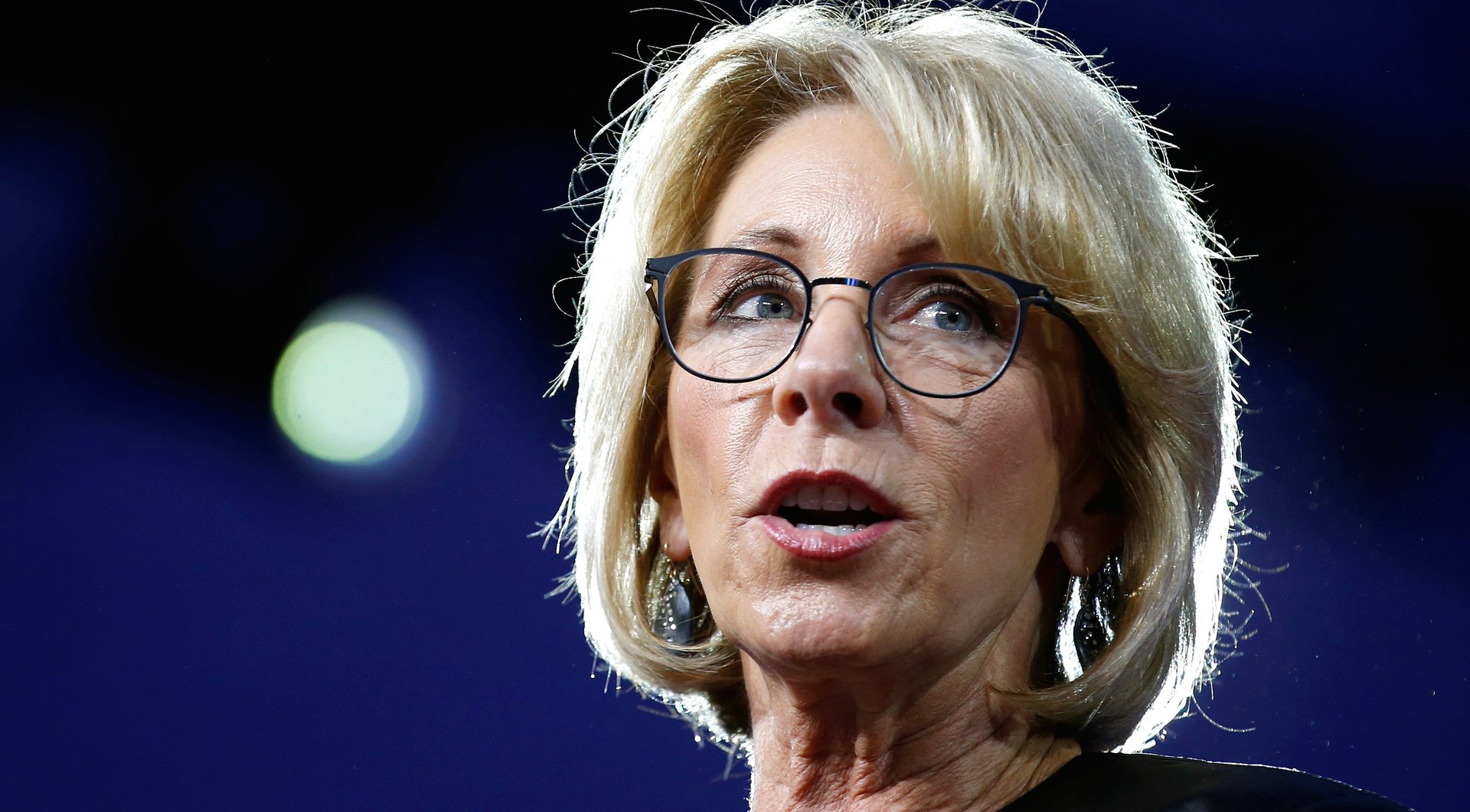Betsy DeVos’ revisionism shows how quickly we’ve forgotten the racist history of US education
On Feb. 27, new US secretary of education Betsy DeVos sat down with leaders of Historically Black Colleges and Universities (HBCUs). Unfortunately, as evidenced by the statement she released immediately after the session, she didn’t appear to have listened to anything they said.


On Feb. 27, new US secretary of education Betsy DeVos sat down with leaders of Historically Black Colleges and Universities (HBCUs). Unfortunately, as evidenced by the statement she released immediately after the session, she didn’t appear to have listened to anything they said.
DeVos’ statement praised HBCUs as “real pioneers” of school choice. These schools stepped up when “too many students in America… did not have equal access to education.” Put simply, this is an outrageous whitewashing of the history of HBCUS.
DeVos made no mention of our nation’s history of slavery, Jim Crow, segregation, or the large-scale oppression of African Americans that made HBCUs a necessity in the first place. The backlash was, not surprisingly, swift. DeVos hurriedly clarified her comments, adding that HBCUs’ “history was born, not out of mere choice, but out of necessity, in the face of racism.”
This backpedaling, while politically expedient, is far too little, too late. Some may think that DeVos is merely ignorant of US history. However, I think that this subtle rewriting of America’s shameful treatment of African Americans is purposeful. If you keep erasing history, eventually people forget. Then, inevitably, the same history gets repeated.
In reality, HBCUs were created for the most part after the Civil War with the express purpose of educating the many African American students denied access to white colleges and universities throughout the nation. Segregation was the law of the land and fully enforced. Various groups created HBCUs—from black missionaries and churches to white missionaries and the federal government’s Freedmen’s Bureau. In addition, the Morrill Act of 1890 led to the creation of a separate public system of HBCUs in many states. The federal government would only give funding to states if they educated blacks as well as white students, so southern states with segregated school systems created separate black colleges to be viewed as compliant.
DeVos is right to highlight the importance of HBCUs, of course. Despite being born out of segregation, HBCUs are responsible for helping to build the middle class as we know it. And although we now live in a country in which segregation is technically illegal (though it still exists), HBCUs continue to contribute to society in deep and meaningful ways. They enroll 8% of all African American students and graduate 20% of all African American students. Without HBCUs, we would see fewer African Americans in STEM programs, medical schools, law schools, and as professors.
But HBCUs have never been about “school choice.” DeVos’ craven attempt to push her own educational agenda notwithstanding, to imply that African Americans had a choice under segregation is insulting and irrational. HBCUs do offer a choice for students today at higher education levels, but this is vastly different from the school choice programs DeVos has long advocated for at the K-12 level. In fact, many of the students who attend HBCUs—over 70% of HBCU students are Pell Grant eligible—are hurt by DeVos’s school choice obsession, as such efforts are often aimed at killing public schools rather than investing in them and the communities that surround them.
Let’s be honest, Betsy DeVos knows nothing about HBCUs. But ignorance does not excuse historical revisionism, especially when it comes to the whitewashing of America’s segregationist history. It seems like someone needs a History 101 refresher.